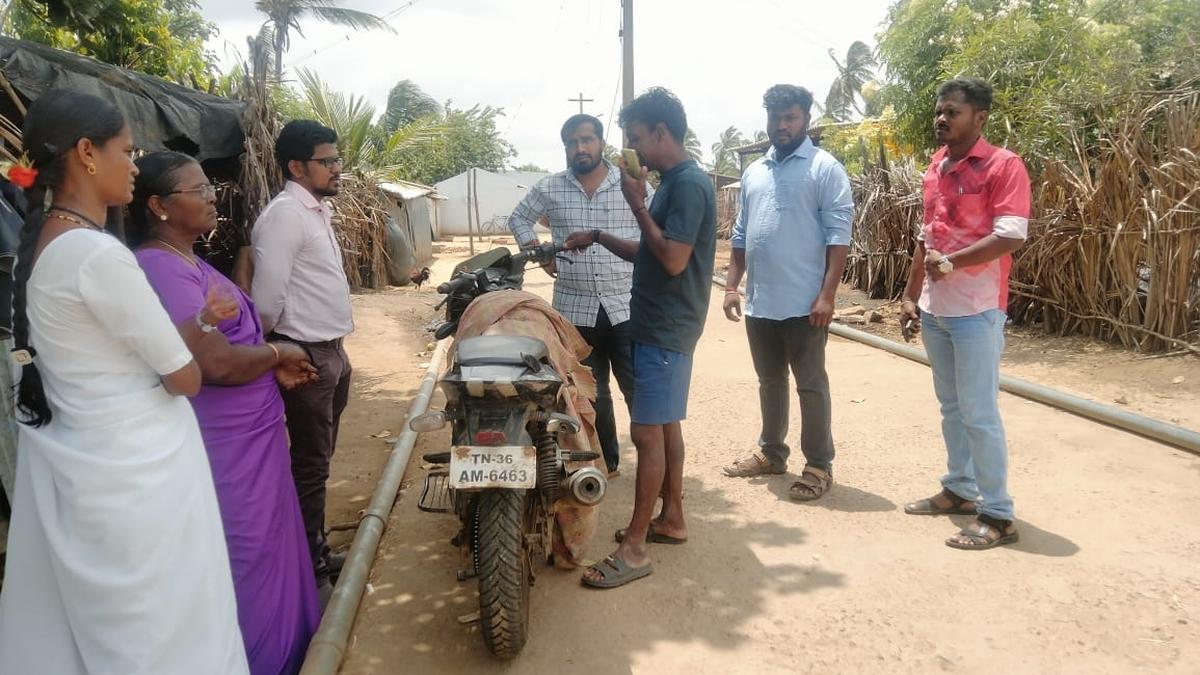
ERODE, July 10:
A 25-year-old pregnant tribal woman, Shevanthi, from Solagar Dhoddi in Tamil Nadu’s Thalavadi Hills, has gone incommunicado just days before her due date, triggering concern among health officials.
Despite receiving antenatal care at the Bynapuram Primary Health Centre (PHC), Shevanthi—who was scheduled for hospital admission on July 7—has ceased all contact with medical teams. Her husband informed authorities that they were visiting a temple in Male Mahadeshwara Hills, Karnataka, but officials were unable to speak directly with Shevanthi.
Health workers, including doctors Senthil Kumar and Vishnu, had visited her on July 5 and urged her to opt for institutional delivery due to medical concerns. Shevanthi had previously been diagnosed with anaemia; her haemoglobin level was just 8.6, raising the risk of complications such as haemorrhage.
“We camped in the village for four days and coordinated with the family, but she could not be located,” said a medical officer. “Her safety remains our top priority.”
The family later claimed that Shevanthi was safe and would contact the local Village Health Nurse P. Jothi once labour began. Health teams have assured full medical support and transport to the Thalavadi Government Upgraded PHC for a safe delivery.
This is not the first time Shevanthi has resisted hospitalisation. In 2019, she had to be admitted to Coimbatore Medical College Hospital with police assistance and delivered a healthy baby girl through a normal delivery.
Her case reflects a broader trend in the region, where many tribal women prefer home births due to fear of surgical intervention and cultural mistrust of institutional healthcare.
“Despite awareness campaigns, cultural beliefs and fear continue to discourage many tribal women from seeking hospital births,” said S. Kannaiyan, president of the Thalavadi Farmers’ Federation.
Officials remain on alert, hoping to intervene in time to ensure the health and safety of both mother and child.
Overview
Mission: To provide timely, in-depth analysis and reporting on digital policy, tech adoption, and the impact of transformation on citizens and businesses.
Focus Areas: Digital governance (e‑services, e‑payment systems like UPI), FinTech, cyber‑security, digital identity (Aadhaar), digital literacy, Internet of Things, AI, and rural connectivity initiatives.
Audience: Policymakers, tech leaders, entrepreneurs, academics, and citizens interested in India’s digital future.
Under Srinivas G. Roopi’s leadership, Digital India Times offers a trusted window into the breakthroughs and challenges of India’s digital revolution—staying true to its tagline by continuously tracking the transformation reshaping the country.
Copyright ©2025 Digital IndiaTimes. All Rights Reserved
Designed and Developed by Galaxy Tech Solutions